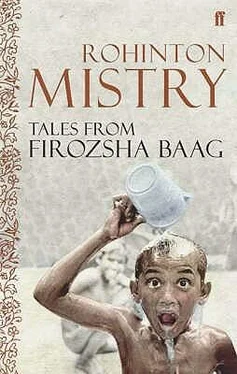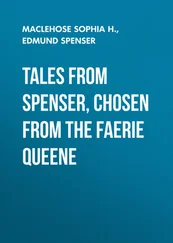Rohinton Mistry - Tales From Firozsha Baag
Здесь есть возможность читать онлайн «Rohinton Mistry - Tales From Firozsha Baag» весь текст электронной книги совершенно бесплатно (целиком полную версию без сокращений). В некоторых случаях можно слушать аудио, скачать через торрент в формате fb2 и присутствует краткое содержание. Год выпуска: 2006, Издательство: Faber & Faber, Жанр: Современная проза, на английском языке. Описание произведения, (предисловие) а так же отзывы посетителей доступны на портале библиотеки ЛибКат.
- Название:Tales From Firozsha Baag
- Автор:
- Издательство:Faber & Faber
- Жанр:
- Год:2006
- ISBN:нет данных
- Рейтинг книги:3 / 5. Голосов: 1
-
Избранное:Добавить в избранное
- Отзывы:
-
Ваша оценка:
- 60
- 1
- 2
- 3
- 4
- 5
Tales From Firozsha Baag: краткое содержание, описание и аннотация
Предлагаем к чтению аннотацию, описание, краткое содержание или предисловие (зависит от того, что написал сам автор книги «Tales From Firozsha Baag»). Если вы не нашли необходимую информацию о книге — напишите в комментариях, мы постараемся отыскать её.
Tales From Firozsha Baag — читать онлайн бесплатно полную книгу (весь текст) целиком
Ниже представлен текст книги, разбитый по страницам. Система сохранения места последней прочитанной страницы, позволяет с удобством читать онлайн бесплатно книгу «Tales From Firozsha Baag», без необходимости каждый раз заново искать на чём Вы остановились. Поставьте закладку, и сможете в любой момент перейти на страницу, на которой закончили чтение.
Интервал:
Закладка:
But a whole week elapsed before Nariman again parked the apple of his eye outside his ground-floor flat and beeped the horn three times. When he had raised the hood, checked the oil, polished the star and swung into the “Colonel Bogie March,” the boys began drifting towards A Block.
Some of them recalled the incomplete story of Savukshaw and the tiger, but they knew better than to remind him. It was never wise to prompt Nariman until he had dropped the first hint himself, or things would turn out badly.
Nariman inspected the faces: the two who stood at the back, always looking superior and wise, were missing. So was the quiet Bulsara boy, the intelligent one. “Call Kersi, Viraf, and Jehangir,” he said, “I want them to listen to today’s story.”
Jehangir was sitting alone on the stone steps of C Block. The others were chatting by the compound gate with the watchman. Someone went to fetch them.
“Sorry to disturb your conference, boys, and your meditation, Jehangir,” Nariman said facetiously, “but I thought you would like to hear this story. Especially since some of you are planning to go abroad.”
This was not strictly accurate, but Kersi and Viraf did talk a lot about America and Canada. Kersi had started writing to universities there since his final high-school year, and had also sent letters of inquiry to the Canadian High Commission in New Delhi and to the U.S. Consulate at Breach Candy. But so far he had not made any progress. He and Viraf replied with as much sarcasm as their unripe years allowed, “Oh yes, next week, just have to pack our bags.”
“Riiiight,” drawled Nariman. Although he spoke perfect English, this was the one word with which he allowed himself sometimes to take liberties, indulging in a broadness of vowel more American than anything else. “But before we go on with today’s story, what did you learn about Savukshaw, from last week’s story?”
“That he was a very talented man,” said someone.
“What else?”
“He was also a very lucky man, to have so many talents,” said Viraf.
“Yes, but what else?”
There was silence for a few moments. Then Jehangir said, timidly: “He was a man searching for happiness, by trying all kinds of different things.”
“Exactly! And he never found it. He kept looking for new experiences, and though he was very successful at everything he attempted, it did not bring him happiness. Remember this, success alone does not bring happiness. Nor does failure have to bring unhappiness. Keep it in mind when you listen to today’s story.”
A chant started somewhere in the back: “We-want-a-story! We-want-a-story!”
“Riiiight,” said Nariman. “Now, everyone remembers Vera and Dolly, daughters of Najamai from C Block.” There were whistles and hoots; Viraf nudged Kersi with his elbow, who was smiling wistfully. Nariman held up his hand: “Now now, boys, behave yourselves. Those two girls went abroad for studies many years ago, and never came back. They settled there happily.
“And like them, a fellow called Sarosh also went abroad, to Toronto, but did not find happiness there. This story is about him. You probably don’t know him, he does not live in Firozsha Baag, though he is related to someone who does.”
“Who? Who?”
“Curiosity killed the cat,” said Nariman, running a finger over each branch of his moustache, “and what’s important is the tale. So let us continue. This Sarosh began calling himself Sid after living in Toronto for a few months, but in our story he will be Sarosh and nothing but Sarosh, for that is his proper Parsi name. Besides, that was his own stipulation when he entrusted me with the sad but instructive chronicle of his recent life.” Nariman polished his glasses with his handkerchief, put them on again, and began.
“At the point where our story commences, Sarosh had been living in Toronto for ten years. We find him depressed and miserable, perched on top of the toilet, crouching on his haunches, feet planted firmly for balance upon the white plastic oval of the toilet seat.
“Daily for a decade had Sarosh suffered this position. Morning after morning, he had no choice but to climb up and simulate the squat of our Indian latrines. If he sat down, no amount of exertion could produce success.
“At first, this inability was no more than mildly incommodious. As time went by, however, the frustrated attempts caused him grave anxiety. And when the failure stretched unbroken over ten years, it began to torment and haunt all his waking hours.”
Some of the boys struggled hard to keep straight faces. They suspected that Nariman was not telling just a funny story, because if he intended them to laugh there was always some unmistakable way to let them know. Only the thought of displeasing Nariman and prematurely terminating the story kept their paroxysms of mirth from bursting forth unchecked.
Nariman continued: “You see, ten years was the time Sarosh had set himself to achieve complete adaptation to the new country. But how could he claim adaptation with any honesty if the acceptable catharsis continually failed to favour him? Obtaining his new citizenship had not helped either. He remained dependent on the old way, and this unalterable fact, strengthened afresh every morning of his life in the new country, suffocated him.
“The ten-year time limit was more an accident than anything else. But it hung over him with the awesome presence and sharpness of a guillotine. Careless words, boys, careless words in a moment of light-heartedness, as is so often the case with us all, had led to it.
“Ten years before, Sarosh had returned triumphantly to Bombay after fulfilling the immigration requirements of the Canadian High Commission in New Delhi. News of his imminent departure spread amongst relatives and friends. A farewell party was organized. In fact, it was given by his relatives in Firozsha Baag. Most of you will be too young to remember it, but it was a very loud party, went on till late in the night. Very lengthy and heated arguments took place, which is not the thing to do at a party. It started like this: Sarosh was told by some what a smart decision he had made, that his whole life would change for the better; others said he was making a mistake, emigration was all wrong, but if he wanted to be unhappy that was his business, they wished him well.
“By and by, after substantial amounts of Scotch and soda and rum and Coke had disappeared, a fierce debate started between the two groups. To this day Sarosh does not know what made him raise his glass and announce: ‘My dear family, my dear friends, if I do not become completely Canadian in exactly ten years from the time I land there, then I will come back. I promise. So please, no more arguments. Enjoy the party.’ His words were greeted with cheers and shouts of hear! hear! They told him never to fear embarrassment; there was no shame if he decided to return to the country of his birth.
“But shortly, his poor worried mother pulled him aside. She led him to the back room and withdrew her worn and aged prayer book from her purse, saying, ‘I want you to place your hand upon the Avesta and swear that you will keep that promise.’
“He told her not to be silly, that it was just a joke. But she insisted: ‘Kassum khà — on the Avesta . One last thing for your mother. Who knows when you will see me again?’ and her voice grew tremulous as it always did when she turned deeply emotional. Sarosh complied, and the prayer book was returned to her purse.
“His mother continued: ‘It is better to live in want among your family and your friends, who love you and care for you, than to be unhappy surrounded by vacuum cleaners and dishwashers and big shiny motor cars.’ She hugged him. Then they joined the celebration in progress.
Читать дальшеИнтервал:
Закладка:
Похожие книги на «Tales From Firozsha Baag»
Представляем Вашему вниманию похожие книги на «Tales From Firozsha Baag» списком для выбора. Мы отобрали схожую по названию и смыслу литературу в надежде предоставить читателям больше вариантов отыскать новые, интересные, ещё непрочитанные произведения.
Обсуждение, отзывы о книге «Tales From Firozsha Baag» и просто собственные мнения читателей. Оставьте ваши комментарии, напишите, что Вы думаете о произведении, его смысле или главных героях. Укажите что конкретно понравилось, а что нет, и почему Вы так считаете.












